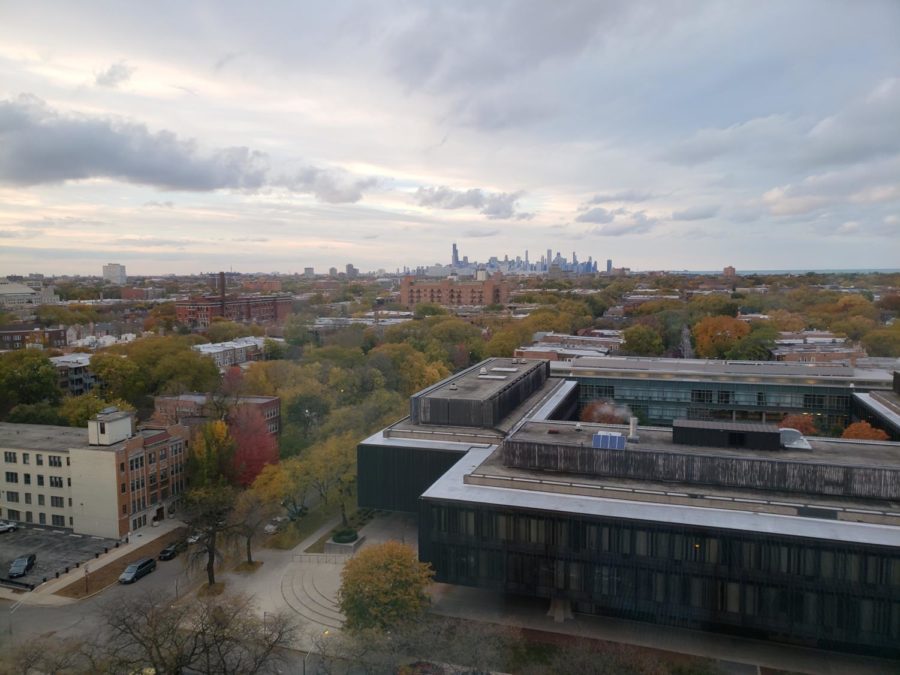This November, Illinois voters will decide whether to adopt an amendment to the state constitution that would lift the current ban on a graduated income tax. If the amendment passes, it would clear the way for Governor J. B. Pritzker’s signature tax plan which passed last spring. Under this plan, the 4.95 percent flat income tax would be replaced with a progressive tax, meaning that residents with higher incomes would pay successively higher tax rates, ranging from 4.75 to 7.99 percent. Rates for net incomes over $250,000 will differ depending on whether taxes are filed by an individual or jointly. Out of the 43 states that tax wage and salary income, Illinois is one of nine states with a flat-rate tax structure.
In an interview with The Maroon, Amanda Kass, the Associate Director of the Government Finance Research Center at UIC’s College of Urban Planning and Public Affairs, said she wanted voters to be informed about what the amendment would actually do. “Importantly, the constitutional amendment does not put in place rates,” Kass said. “What income tax rates are and what is subject to taxation is still up to the general assembly and the governor. The proposal to change the constitution is different from the rate structure that has been approved by the general assembly. Voters should really think of these two things as separate.”
While the new tax plan increases the tax rate for the highest income brackets, lower and middle-income households would pay the same amount or less under the new plan. The most recent government data estimates that the median household income in Hyde Park is $54,140 per year. Under Pritzker’s plan, only households making $250,000 or more would be subject to an increased tax rate.
According to data from the Illinois Department of Revenue via the Chicago Tribune, 2 percent of residents in the 60637 ZIP code would see a change in their tax rate, which covers households between East 55th and East 71st and from South State Street to Lake Michigan. That figure is 3 percent in the 60615 ZIP code, which spans North-South from East 55th to East 47th and East-West from South State Street to the lake.
Over the past few months, Governor Pritzker has spent millions of dollars of his own money on advertising for the graduated income tax. Proponents of the bill predict at least 97 percent of residents would receive a tax cut. Another argument in favor of the tax bill is that it would provide desperately-needed income for the state. Even prior to the financial strain of the COVID-19 pandemic, Illinois struggled with a hefty budget deficit. The state has several billion dollars worth of debt and currently holds the worst credit rating of any U.S. state. Governor Pritzker has made it a priority to fix these issues and has championed a progressive income tax as a solution that would only increase taxes for the most wealthy individuals.
Notable opponents of the amendment include prominent University donor and founder of hedge fund Citadel, Kenneth C. Griffin, and the Illinois Chamber of Commerce. Critics of the bill argue that it would provide the state legislature unchecked power to increase taxes in the future, potentially causing businesses and high net-worth individuals to leave the state.
The evidence for this claim is mixed. For instance, a study conducted by Stanford University on states with “millionaire taxes” showed that migration of high-income individuals was occurring, but not to a significant extent. The study’s report noted that, “millionaires are not very mobile and actually have lower migration rates than the general population. This is in part because family responsibilities and business ownership are higher among top income-earners, which embeds individuals in their local regions.”
Yet even if a simple exodus of wealthy individuals is unlikely, others still argue that a progressive income tax could have other undesirable consequences. Dr. Paula Worthington, a Senior Lecturer at the Harris School of Public Policy at the University of Chicago, pointed out that, “People who decide to stay may decide to make different choices about their work effort or their investments. They may do so to limit their tax liability or protect themselves from these higher taxes.”
These more subtle forms of tax avoidance would lead to increased inefficiencies in the tax system. Dr. Worthington believes that this behavior would likely become more pronounced if the state continues to raise income taxes above what Governor Pritzker is currently proposing. This possibility would impact the long-term success of a progressive tax system to fill the state’s budget hole.
However, if the amendment is not approved, Illinois’s dire fiscal situation may force Governor Pritzker and the General Assembly to pursue other ways to raise funds. If the amendment to allow a progressive tax structure is not approved, a flat-rate tax increase or a new tax on retirement income could be imminent.
The proposed amendment, Public Act 101-0008 (full text here) will be on the November 3 ballot. At least 60 percent of voters would need to approve this measure for it to be passed. If enacted, the new tax system will go into effect on January 1, 2021.
The text of the ballot measure can be found here.









